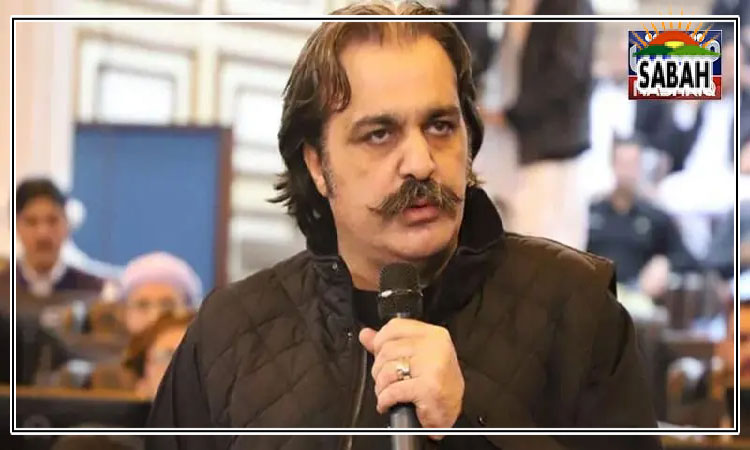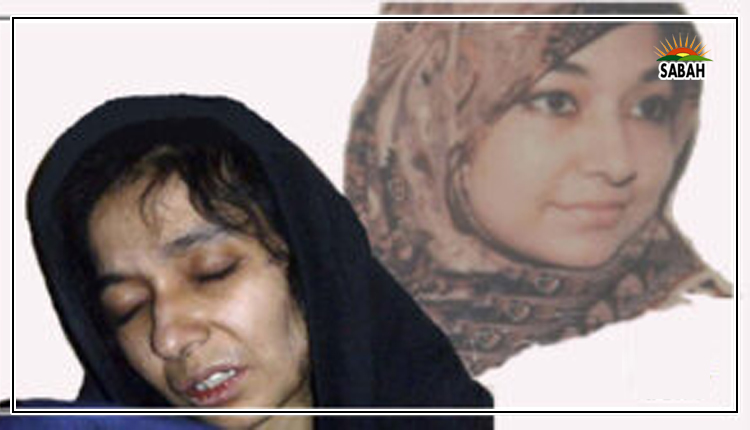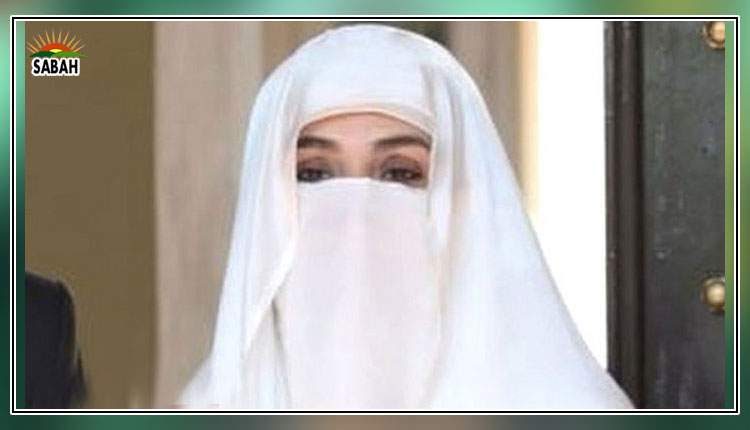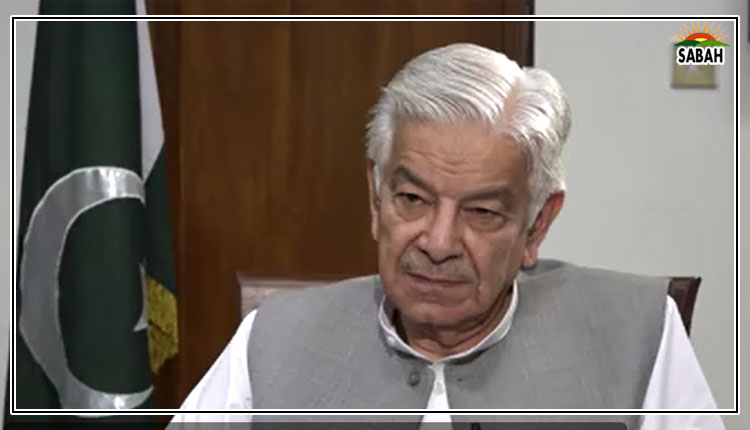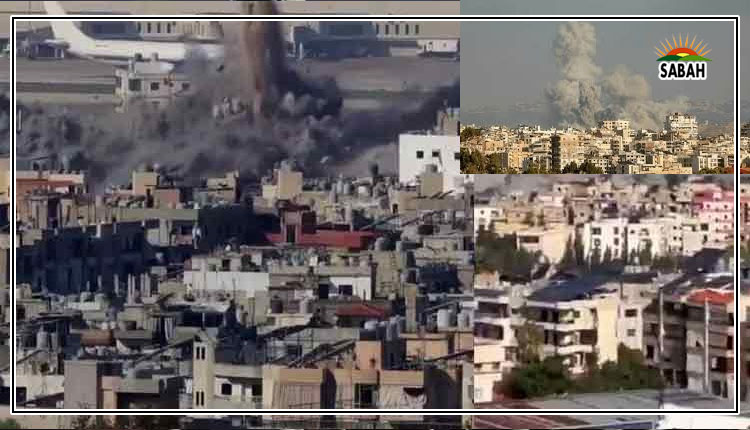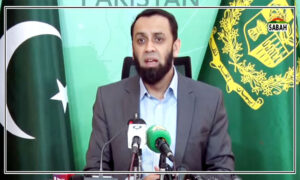India’s state terrorism against Muslims…Durdana Najam
Caretaker Prime Minister Anwarul Haq Kakar, in his maiden speech at the United Nations General Assemblys annual huddle, spoke unequivocally about Indias forced rule in Jammu and Kashmir, bathed in state-sponsored terrorism. He said India had deployed 900,000 soldiers in Kashmir besides imposing several lockdowns and curfews and incarcerating politicians, journalists and human rights activists for the last four years. He pointed at the extrajudicial killing of innocent people in fake encounters and so-called cordon and search operations. At times, Kakar narrated, the entire village is obliterated as a strategy to inflict collective punishment on Muslims. He pleaded to the international community to play a role in building peace between India and Pakistan so that the issue of Kashmir is resolved according to the UN resolutions. Talking about Pakistans offer to India for a mutual restraint on strategic and conventional weapons, the PM termed it in the interest of world peace.
Human rights violations, especially of the Muslims, were one of the motivating factors behind giving Muslims face to the geographical location where most of them lived in the united India. The diversionary policies of the British and the long-held acrimony against the 1000-year-long Muslims rule over India had developed in Hindus a mindset that sought a Hindu-majority country where the Muslims lived a subservient life. The treatment meted out to the Muslims the vandalisation of their religious sites, rituals and symbols and the sustained effort to alienate them from joining mainstream social and political life made them apprehensive about their status after the British left. Numerous plans were made to create an enabling environment for both nations. However, the idea of the two-nation theory got strengthened every time Congress threw in the dustbin plans for a peaceful resolution of the political impasse. The Muslims had asked for an autonomous political presence in their majority areas under a federating unit. After the denial of Congress to accept the Pakistan Muslim Leagues victory in the 1946 elections in Muslim-majority areas and the formers subsequent rejection of the Cabinet Mission Plan, the die was cast for a new homeland.
However, instead of learning lessons from the partition one of the bloodiest separations of two states that wobbled 1 million people India has made itself an unsafe country for Muslims and those groups of minorities who fail to follow the Hindu lifestyle.
Prime Minister Kakars statements are not allegations per se against India; the Human Rights Watch Report 2023 corroborates every word he said.
According to the National Human Rights Commission Report 2023, extrajudicial killing and torture have persisted in Jammu and Kashmir despite Indias forceful annexation of the region by revoking its constitutional autonomy. The report stated that 147 people died in police custody, 1,882 were put to death in judicial custody and 119 were killed in extrajudicial killing in the first nine months of 2022. The notorious Armed Forces (Special Powers) Act remains intact in Jammu and Kashmir, providing effective impunity from prosecution to security forces personnel, even for serious human rights violations.
As for collective punishment given to Muslims without evidential proof of their involvement in the charges laid against them, in April 2022, authorities in Madhya Pradesh, Gujarat and Delhi summarily demolished property mostly owned by Muslims in response to communal clashes. Though the demolition was justified with the claim that the houses were illegally built, the statements from the perpetrators indicated it to be a collective punishment for Muslims. Houses that were involved in stone pelting will be turned into rubble, the BJP home minister in Madhya Pradesh state warned.
The trend of Islamophobia is rampant in India. In June, a BJP politician made an insensitive remark against Prophet Muhammad (peace be upon him), provoking protests nationwide. In response, excessive force was used in Jharkhand, killing two people, while in Uttar Pradesh, homes of Muslims were demolished on the allegation based on hearsay that the houses belonged to the key conspirators behind the protest violence.
In June 2022, three UN special rapporteurs wrote a letter to the Indian government demanding an impartial investigation into the illegal demolitions of Muslims homes and other low-income groups on a mere allegation of their involvement in communal violence. According to the UN, the authorities did not reply to any query or carry out any investigation.
On the contrary, the Courts of India, in a blatant disregard for the violation of the human rights of Muslims, released 11 men sentenced to life in prison for gang rape and murder during the 2002 anti-Muslim riots, which was sanctioned by the then Chief Minister of Gujarat, Narendra Modi.
In January, photographs of over 100 Muslim women, inducing journalists and activists, were displayed on an app saying they were up for sale. The idea was to humiliate and spread fear among them.
A report released by the Business and Human Rights Resource Centre based in the UK has highlighted that India will be one of the most dangerous countries for human rights and labour activists in 2022.
The Indian government might have forced constitutional changes on the people of Kashmir and decked the region with sham normalcy. Still, the truth is that there is a profound resentment in the people of Kashmir for being robbed of their independence, for playing with their dignity, for humiliating them, and for denying them their democratic right of consultation. The political solution thrust on Kashmiris has alienated people more from the centre, making elections a problematic proposition for Delhi.
Being a Kashmiri is different from being an Indian. For decades, India has been trying to shy away from this simple formula, wherein lies the seed for peace in Kashmir and the region.
Courtesy The Express Tribune


